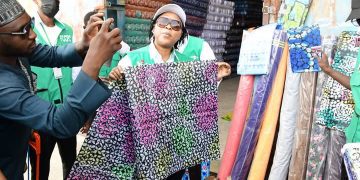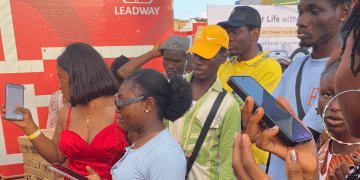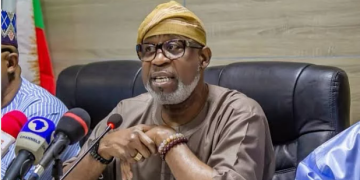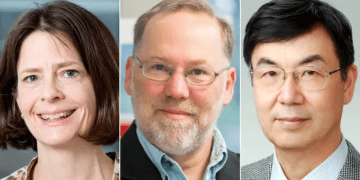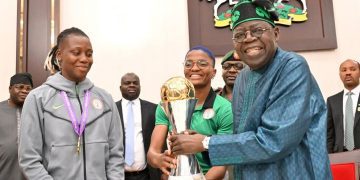
•One of the Catfish ponds in Eriwe Fish Farm Village
By Heritage Odih, Abeokuta
Federal Government(FG) through the Rural Electrification Agency(REA) says that the Eriwe Fish Farm Village in Ijebu – Ode requires an estimated 1MWp Solar Hybrid Mini – Grid powered electricity to effectively serve the quantum of agribusiness going on daily on the over 156 – hectare land.
The Managing Director of Nigerian Rural Electrification Agency(NREA), Engr. Ahmad Salihijo Ahmad, made this known after inspecting the 100KWp Solar Hybrid Mini – Grid powered electricity built by the agency to provide power to Eriwe Fish Farm Village.
The N2.5bn naira annual turn over
scheme which is a project of the Ijebu Development Initiative for Poverty Reduction(IDIPR) through the Awujale of Ijebuland, Oba Sikiru Adetona, engages over 500 farmers, 42 farm cooperative
groups and scores of farm hands daily.
Ahmad said the inspection of the farm and consultation with the farmers has revealed that the 100kW already in place could only serve 10 % percent of the agriculture setting, adding that on a closer assessment of the economic activities going there revealed that beyond the feed mill, the farmers also needed light to pump water into or out of their fish ponds routinely.
He noted that the project was aimed at providing clean and affordable energy as part of REA’s policies on poverty alleviation especially around the agricultural sector, saying there is plan a foot to expand it to 1 (one) MWp.
Ahmad said the beneficiaries would be metered and were expected to also pay subscription fee to be determined by relevant stakeholders.
He said the fee would be such that could scale down the farmers’ cost of production, drives profitability and make fish affordable to meet the protein needs of Nigerians.
“It is one of our projects. What we have here is 100kilowatt system powering agriculture setting. It is a development programme for Ijebu community on poverty alleviation. The project is part of our pragmatic approach to budgeting we have been doing in the last couple of years where we are looking at the alleviation of poverty especially around agriculture sector. So, we have one of this project in each geopolitical zone. This one is for Southwest geopolitical zone.
“The project is more or less completed because they have have even gone ahead to power a mixer that produce fish meals. This sort of visit is important so that we can fine tune economics of the service being provided because as we know, everything has to be built on sustainability and viability.
“We have seen one of the farm managers and we are beginning to understand what this power means to them, so beyond the mini grid being given to them, ours is to find out what is best use of power we are providing here. As we are speaking to the farmers, we also speaking to the developers so that we can come up with the right power module for them.
“This is 100 kilowatt and I am hearing that it is only powering 10 percent of the farm and so essentially, it means we are talking about one megawatt. In terms of the payment, obviously, it is not going to be free because this is something the government has done as a proof of concept so that we can create that environment for private developers to actually expand upon it,” Ahmad said.
Also speaking, the President of Farmer Aquaculture Union, Eriwe Farm Village, Quadri Nurudeen Oriyomi hailed the project, saying it would have cost saving effect on their agricbusiness
“The project can only cover 10 percent because the land here is over 156 hectares where we have over 500 farmers. We have about 42 groups and in each group we have over 30 people. This like they said is just like a sample to test-run how it is going to go round so that everybody will benefit.
“By the time you calculate it, this will just take care of 40 ponds, I mean 40 pumping machines out of over 200 pumping machines. Definitely, we have agreed to subscribe to the solar power with the minimum price that is not going to affect the farmers.
“We appeal that they expand solar power to make other farmers benefit so that it won’t lead to beefing. For instance, some farmers will be enjoying solar while others will be using fuel, it may cause a crisis,” he said.
•Cover pix: Engr. Ahmad discussing with farm managers, leaders and project developers at the site.

